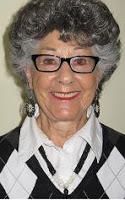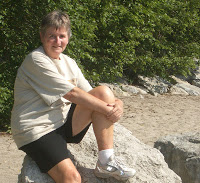I have been
fortunate enough to have several epiphanies in my life. None has taught me
anything new, but simply emblazoned on my consciousness what my sub-conscious
already knew. For that reason they have
a certain comic aspect. In retrospect I always envision myself at these moments
as a comic strip character, slapping my forehead while a starburst leaps from
my head containing those immortal words:
“Well, duh!”
The time and
place of these revelations is burned in my brain the way those of our
generation all remember where we were when Kennedy was shot.
I don’t think
I could say I have ever had a huge epiphanic (can it be an adjective?) moment,
but rather several little epiphanettes.
I was nine
years old when I had my first “well, duh!” moment.
I was in
church on Christmas Eve, surrounded by friends, neighbors and family lustily
belting out the traditional tried-and-true carols. Even at nine I could sing
them all with little attention and meanwhile was surveying the obligatory
stable and manger set piece reposing on a rickety table before the old stone
font. The nativity scene had been hand carved sometime doubtless during Queen
Victoria’s reign and was dutifully dusted off for a few days every Christmas
season. Eyeing the Baby Jesus’ tarnished wire hallow it came upon me.
Now, given the
time and place one might well expect a Visitation from Christ, but I fear it
was more from the Antichrist.
“This is just a load of codswallop,” came to me in a blinding flash. “I
don’t need any of it. I will find my own way to God in my own time and my own
space and the last thing I need is interference from this mumbling, bumbling
old bishop.”
And here
endeth my participation in organized religion.
I loved my
college years. They were probably the happiest days of my life, until now that
is; now is the best ever, but that’s another story. Those happy days were
marred by only one thing; this man/woman business. I had no interest in any of
it. But I played my part and went on
dates and petted in dark corners and hated it all.
Then suddenly,
hiking beside a trickling stream on a purple hillside one weekend, it hit
me I didn’t have to play the game. Nobody was forcing me. I could
simply say “no” to the dates and the dances and the mixers, enjoy my ever
widening circle of friends and revel in my new learning. That was what I was
there for after all.
“Well, duh!”
I had just let
the letter slip through the slot of one of those very British bright red
mailboxes. The rain poured down its shiny red sides as my wet hair dripped into
my eyes and I wriggled cold toes in soggy shoes.
Why had I
mailed that application? I didn’t even want the job. But in a Britain still
suffering from post war austerity there were not many jobs to chose from. I had
graduated from college and left that particular bubble of unreality, so with
wet feet now firmly on wet ground, I had to do something.
Standing
staring at that dripping mailbox, all was suddenly illuminated. I didn’t have to stay here, in this place
where the future looked as gray and bleak as the weather. I was young and fit
and fairly intelligent, with my shiny new degree in my back pocket I could go
anywhere, do anything. I was free.
“Well, duh!”
I loved my new
job at IBM, but I had taken it for the sole purpose of saving enough money for
the airfare back to Britain. After all, I had only left home for a year or so,
just to see something of the world before settling down to a career and, I
supposed, a family. I hadn’t emigrated.
That rang too much of finality, of no return; of stinking ships’ holds and
Ellis Island.
After only
three months with IBM I had enough money for the fare. But if I stayed just a little longer ….
And then it
was summer, and the sun shone and the mountains were beautiful, so why rush
home to the cold rain of an English summer?
And then it was Fall, and the aspen trees glowed …..And I was driving
down North Wadsworth one day, through the peaceful farming country that still existed
in those days, and it came just like a flash of dazzling light. (Apparently
epiphanies come the road to Denver as well as the road to Damascus!) I didn’t have to leave Colorado. Ever. There
was no rule, no law. I could stay here in this beautiful place where the sun
shone 300 days of the year; where I had a job I loved and many wonderful
friends. Forever.
“Well, duh!”
I never should
have married. At some level of consciousness I knew that before I married and
for every minute that I remained married. But I took those vows seriously, had
chosen my path of my own free will, and made it work. I was happy.
Sitting in the
departure lounge of Raleigh-Durham airport, waiting for a delayed flight home
from a business trip, I realized with sudden blinding clarity that I didn’t
want that plane to turn up. I didn’t want to go home.
When sitting
for interminable hours in an airport is preferable to something else, you know
there’s a whole lot wrong with the something else. I was not happy. Not, at least with the married part of
my life. My stepchildren, whom I would
never have abandoned, were essentially grown up. It was just my husband and I, and I didn’t
want to go home. But I didn’t have to
struggle on, making it work. I would not be the first woman to get divorced,
and certainly not the last.
“Well, duh!”
Once I had
settled comfortably into my divorced skin, I had one last revelation to go. I
was sitting on my deck with the cat on my lap and morning coffee in my hand,
listening to Anne Murray tapes. Now you may not know this, but many a lesbian
of my age was at one time madly in love with old Annie. I was slowly realizing that the feelings in
my groin, not entirely appropriate for six o’clock on a Sunday morning were,
even less appropriately, entirely engendered by Ms. Murray.
The lightning
struck.
“Oh my God!
I’m gay! I’m queer! I’m a lesbian!”
Far from being
scary, it was thrilling and uplifting, powerful with promise.
“Oh … my …
God!”
Half the
people in the world are women and a certain percentage of them feel like I do.
And there is nothing in this world to stop me getting out and finding them.
“Oh … my …
God!”
About the Author
I
was born and raised in England. After graduation from college there, I moved to
the U.S. and, having discovered Colorado, never left. I have lived in the
Denver-Boulder area since 1965, working for 30 years at IBM. I married, raised
four stepchildren, then got divorced after finally, in my forties, accepting
myself as a lesbian. I have now been with my wonderful partner Betsy for 25
years.


